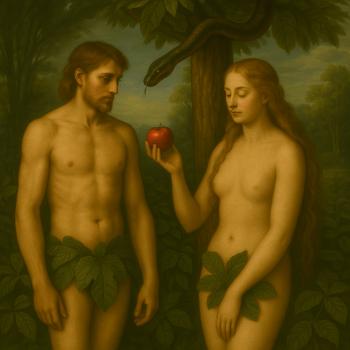The two halves of life offer two different experiences. Will we have the emotional maturity to accept these differences and to adjust our ways of life to accommodate them?

The Stages of Life
In The Way, I wrote four autobiographical chapters based on the four stages of life as described in Indian philosophy, including the student stage, the householder stage, the forest dweller stage, and the renunciant stage. There is a definite distinction between the first and second halves of life. This framework helps me to place the arc of my life in perspective.
During the first half of life, we accumulate experience, knowledge and possessions while finding a partner, pursuing a career and/or an education, raising a family and serving our community. During the second half of life, we retire to “the forest,” pursuing a life of contemplation and service. A few rare people renounce all desires, duties, fears and hopes.
A few years ago, I was touched by a friend’s obituary, a testimony to a life well-lived. My friend had been a business owner, a family man, and a veteran. His obituary didn’t mention any of that. Instead, his obituary revealed his essence. He loved children, made music, tended a garden and walked dogs. At the end of his life, his possessions filled only eleven boxes. He was a renunciant.
My friend understood that he was NOT defined by his beliefs, career, education or resume. (If my obituary reads like my resume, then my survivors will have dropped the ball.)
The Two Halves of Life Offer Two Different Experiences
Psychiatrist Carl Jung, who coined the phrase “the two halves of life,” famously wrote, “The first half of life is devoted to forming a healthy ego; the second half is going inward and letting go of it.” I wrote about self-actualization (the egoic self) and self-transcendence (the True Self) here.
Richard Rohr, a Catholic priest, wrote Falling Upward: A Spirituality for the Two Halves of Life. Rohr describes the different ways that we approach the two halves of life when he writes, “In the second half of life, we do not have strong and final opinions about everything, every event, or most people, as much as we allow things and people to delight us, sadden us, and truly influence us.”
This observation aligns with Carl Jung’s statement and with James Fowler’s stages of faith development. In Fowler’s model, we accept ambiguity and we universalize our beliefs, as we mature.
In From Strength to Strength, social scientist Arthur C. Brooks describes finding happiness and purpose in the second half of life. He suggests that many people peak 20 years into their careers. Many readers will be surprised to learn that we peak so early.
I was not surprised that my career (like most peoples’ careers) peaked early. When I was a young man, I offhandedly mentioned that I had a 40-year career ahead of me. “No,” my dad replied, “Actually, you have a 20-year career ahead of you. Most people peak much sooner than their sixties or seventies.” That insight changed the way that I approached my career and my life.
Younger people display what psychologist Raymond Cattell called fluid intelligence, the ability to analyze novel problems. Older people develop what Cattell called chrystalized intelligence, the ability to apply skill and knowledge to familiar problems.
During my life, I spent 25 years managing financial transactions, which primarily required creativity and flexibility. Then, I spent 15 years pursuing a spiritual journey and writing a book about it, which primarily required conceptualizing and integrating the information that I previously acquired.
Can We Accept Our Aging and Death?
Recently, one of my book clubs discussed From Strength to Strength. I liked the book, and I could relate to the younger person that I used to be and to the older person that I eventually became. But, some of the Millennials could NOT relate to younger people without work/life balance. At the same time, some of the Baby Boomers could NOT relate to older people with work/life balance.
Buddhism emphasizes impermanence and “no-self,” so it seems natural to me to accept aging and dying. But, our Western society emphasizes competition, individuality and youth. For many, including some of the older people in my book club, they will always equate what they do (or used to do) with who they are. Also, they will have a difficult time accepting aging and death.
In Buddhism, there is a common spiritual practice involving contemplating our own deaths, which develops mindfulness. Likewise, in the book, Brooks encourages readers to ponder their deaths. One of the older people in my book club confessed that he could NOT do it. The idea of contemplating his own impending death was simply too distressing to him.
The two halves of life offer two different experiences. Will we have the emotional maturity to accept these differences and to adjust our ways of life to accommodate them?
If you want to keep up with the latest from You Might Be Right, please subscribe.
The Way received a 2024 Nautilus Book Award.
If you enjoyed this article, please leave a comment at the bottom of this page.
Thanks for reading You Might Be Right!!














